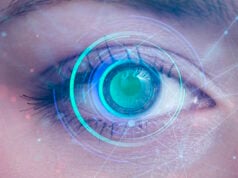
Do you find yourself forgetting simple things, like people’s names or stuff you just learned? Forgetfulness can be annoying when you’re trying to learn something, especially if you are a student, and it can be a big time waster. There are many ways to improve your memory, from apps to supplements, but the key to boosting your memory could also lie in your length and quality of sleep.
The Mayo Clinic suggests that adults get at least seven to nine hours of sleep each night and it’s even more for children, so if you are falling short of this target, you might notice that your memory is not at its best.
Studies show that getting more sleep can improve your memory in interesting ways – by helping to create long-term memories, gel or store new information and helping you recall previously forgotten info, among other ways. Keep reading to learn more as we delve into six ways that sleep can improve your memory.
1. Sleep Can Improve Focus
We’ve all experienced how a sleepless night can make it difficult to focus and stay on task the next day. When we are tired, it can be difficult to take in new information and pay attention, let alone remember it the next day.
The National Sleep Foundation explains that when we “lose sleep, it’s harder to focus and pay attention”, which can affect “school performance and job productivity”.
This lack of focus can even be dangerous, especially when driving and it can slow our reaction time, making for “other safety-related risks at work and at home.” A good night’s sleep makes for a mind that is less prone to distraction and if we are less distracted, we are more likely to remember things.
Adequate sleep can also help focus when multitasking, so if this is an issue for you, make sure you are getting enough sleep hours, each and every night.
2. Sleep Helps Create Long-Term Memories
Scientists have long believed that the process that turns short-term memories into longer, “banked” memories happens during sleep, although they are still unsure exactly how. The regions of the brain where this “banking” process occurs seems to be in the hippocampus and neocortex.
To explain it simply, the hippocampus is responsible for playing the events from the day and the neocortex reviews them and gets them ready to store them for the long term. Scientists are now trying to better understand how the different stages of sleep affect this storage process.
What they do know is that sleep is an important part of this storage process. Research out of MIT’s Center for Neural Circuit Genetics showed that mice that were prevented from replaying their waking experiences during sleep were not able to remember these experiences as well as other mice that did not have this neural pathway interrupted.
So, sleep is not only an important part of our short-term focus but is needed for turning these daily bits of info into long-term stored data.












